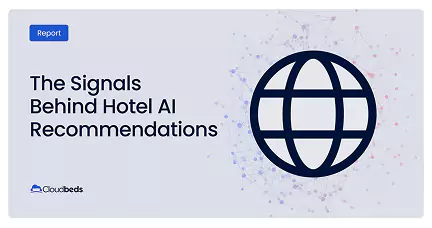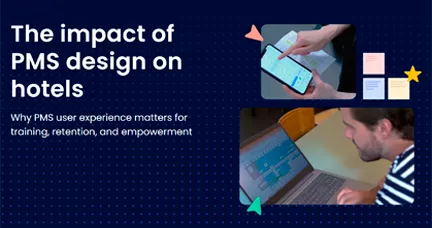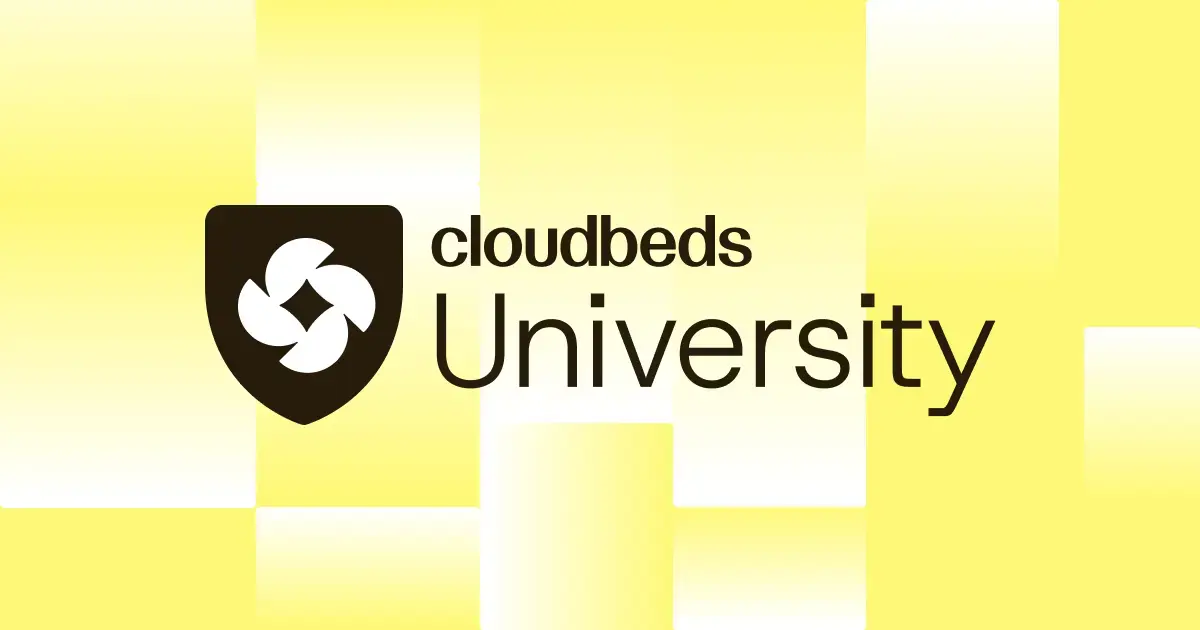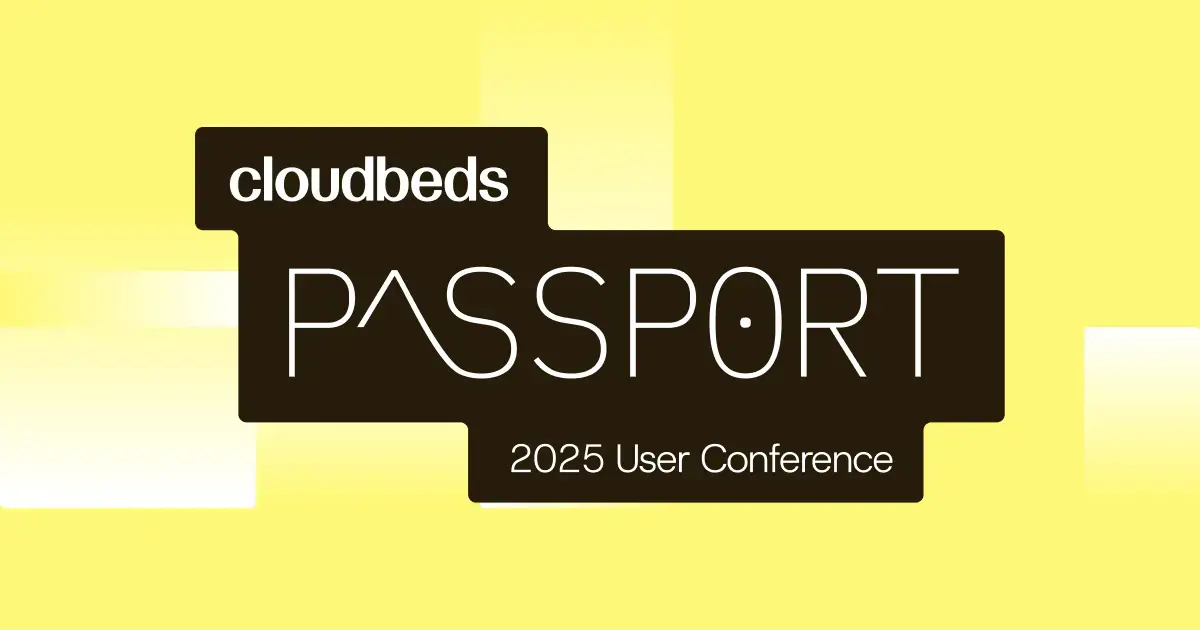
Artificial intelligence went mainstream in 2023, changing the way people search, communicate, and create content.
One of the most widely adopted forms is generative AI, tools like ChatGPT, Gemini, and Perplexity that can instantly produce responses to almost any prompt.
For hotels, generative AI opens the door to faster content creation, more personalized guest communication, and greater operational efficiency. But while the technology is powerful, it’s often overhyped, and not all “AI-powered” solutions deliver real value.
In this article, we’ll break down what generative AI is, where it adds value (and where it doesn’t), and how to evaluate AI-driven tools that can truly support your hotel’s growth.
What is Generative AI?
Generative AI is a type of artificial intelligence that creates new content, like text, images, code, or videos, in response to written prompts. It doesn’t just analyze data; it produces original material based on patterns learned from massive datasets.
One of the most common examples is ChatGPT, which travelers might use to ask questions like, “What are the best family-friendly beaches in Mallorca?” Instead of browsing multiple websites, they get a curated list of recommendations instantly.
In the hospitality industry, generative AI can be used to write emails, respond to guest reviews, generate social media posts, or assist with website copy to help teams save time and scale their efforts.
During an episode of The Turndown, Maxim Tint, Founder of Trevo, broke down what exactly generative AI is and how it’s being used today.
Tune in to The Turndown
Listen to Maxim Tint on how GenAI is being used today.
Travelers are already using GenAI to plan trips
According to Adobe, traffic from AI sources to US travel and hospitality sites surged 1,700% between July 2023 and February 2024. Travelers are increasingly using genAI to research destinations, compare accommodations, and build personalized itineraries in seconds.
1700%
surge in traffic from AI sources
In our Signals Behind Hotel AI Recommendations report, we found that GenAI tools are changing how travelers discover and evaluate hotels. Visibility in these tools for hospitality businesses depends on more than just pricing; it’s influenced by a variety of factors, including reviews, digital presence, website quality, and brand clarity.
This shift makes it even more important for hotels to show up well across digital touchpoints and create content that AI engines can understand and surface. Generative AI can help you craft that content efficiently, but it needs to be supported by real data and a cohesive strategy.
Are you being recommended by AI engines?
See which signals AI favours and how to make the list.
The value (and limits) of generative AI for hotels
There are tons of use cases for generative AI tools, but it is especially useful for content-heavy, repetitive tasks that benefit from speed and scale. This includes:
Marketing: Speeds up creation of ad copy, emails, newsletters, visuals, and OTA listings.
Guest communication: Supports chatbots and virtual concierges that respond to guest questions in real time and in their preferred language, freeing up staff to focus on high-touch customer experiences.
Reputation management: AI enables hoteliers to reply to reviews with the relevant nuances based on the original review, avoiding boilerplate responses.
Content creation: Helps marketing teams write blog posts, local guides, and website copy more quickly.
That said, generative AI isn’t a catch-all solution. On its own, GenAI can’t:
- Predict demand based on historical or market data, since it lacks understanding of real-world causality and can’t process integrated data sources from your PMS and market intelligence tools.
- Identify the root cause of a drop in bookings or make optimized pricing decisions, as it doesn’t grasp your business logic or how different factors influence booking patterns and revenue outcomes.
- Recommend marketing strategies that actually move the needle, since it can’t analyze the true cause-and-effect relationships between campaigns and business results.
Think of generative AI systems as a helpful assistant, ideal for accelerating repetitive or creative tasks. But for deeper insights and strategic decision-making, hotels need advanced models like causal AI and multimodal AI, which are designed to work with integrated data and understand the “why” behind trends and outcomes.
5 best practices for using generative AI
To get the most value from generative AI while avoiding common pitfalls, follow these guidelines:
1. Always review AI-generated content
Generative AI is not always factually correct. It can make mistakes or even provide entirely fabricated information, a phenomenon known as “hallucinations.” Always read and edit its outputs to ensure proper tone, accuracy, and brand alignment before publishing or sending.
2. Use it as a brainstorming tool
GenAI excels at generating multiple ideas quickly on practically anything: email subject lines for your promotions, unique amenities for business travelers, themed packages around local events, or different angles for a campaign, like positioning a spa package as a stress-relief escape, a romantic getaway, or a wellness journey.
These suggestions can help spark creativity and accelerate content development, but without brand context or business understanding often lack the nuance needed for final messaging. That’s why it’s best to treat outputs as the starting point to be shaped, edited, and refined by your team.
3. Spend time training the tool
The more context you give generative AI technologies, the better the results. Think of it like onboarding a new team member; you wouldn’t expect great results without context.
To improve results, “train” the tool with information about your hotel’s unique selling points, target guest demographics, and brand personality traits, together with samples of marketing materials in your tone of voice.
This helps the AI model better mirror your brand and generate higher-quality content. Training is an iterative process, so if an output feels off, provide feedback and clarity on what you’d like to improve. Over time, you’ll notice more relevant suggestions that reduce editing effort.
4. Don’t share guest data on open platforms
With that said, be careful what you share with open platforms. When you input information into free AI tools, that data can be stored, analyzed, or even used to train future models, creating serious data privacy and compliance risks.
Never paste guest names, booking information, payment details, or review excerpts that could identify specific guests. Use anonymized examples instead, or work with embedded AI tools (like Cloudbeds) that keep your customer data secure while still leveraging AI capabilities.
5. Adopt systems with integrated AI
Standalone generative AI solutions can be limited. But when it’s integrated with your PMS, CRM, and revenue management system, it becomes exponentially more useful. Access to real-time guest preferences, stay history, and pricing data allows AI to generate personalized experiences.
For example, instead of writing a generic “Welcome back!” email, AI with access to your systems can craft: “Welcome back, Sarah! We’ve reserved your preferred corner room on the 3rd floor and noticed you enjoyed our spa services last time. Here’s a 20% discount for your next session.”
How Cloudbeds incorporates generative AI
If you’re exploring AI solutions for your hotel, it’s worth digging deeper to understand what type of AI powers the technology. Many vendors claim their tech is “AI-powered,” but in reality, their functionality is limited to basic generative outputs with little connection to your actual hotel data or operations.
Cloudbeds takes a more advanced approach, integrating generative, causal, and multimodal AI across its platform. This allows hotels to not only generate content but also automate complex workflows.
On the generative AI side, Cloudbeds helps hotels save time and communicate more effectively with tools built directly into its system:
Reputation management
Respond to guest reviews quickly and professionally. GenAI analyzes sentiment and tone, then suggests thoughtful replies in your brand voice and the guest’s preferred language, so you avoid boilerplate responses while staying on brand.
Marketing automation
Read your website and OTA profile pages to understand your brand and then craft email promotions in your voice and style in seconds.
Ad copy
Use AI to craft retargeting ads to potential guests who showed intent but didn’t complete the booking process, keeping your property top-of-mind for travelers in their booking journey.
Translations
Our guest experience platform includes built-in AI translation, helping you communicate with guests and team members in multiple languages without needing a dedicated translator.
Helping hotels work smarter
Generative AI is already helping those in the hospitality sector gain a competitive edge, especially when it comes to marketing, communication, and content creation. It reduces busywork, speeds up execution, and enables lean teams to do more with less.
But the real power of AI emerges when it’s integrated into your hotel’s systems. When generative AI works alongside your PMS, CRM, and RMS, it becomes part of a larger strategy—fueling what we call predictive hospitality: anticipating guest needs before they’re expressed, personalizing every touchpoint, and delivering experiences that drive loyalty and direct bookings.
Unlock your competitive edge.
Generate content and automate complex workflows.



